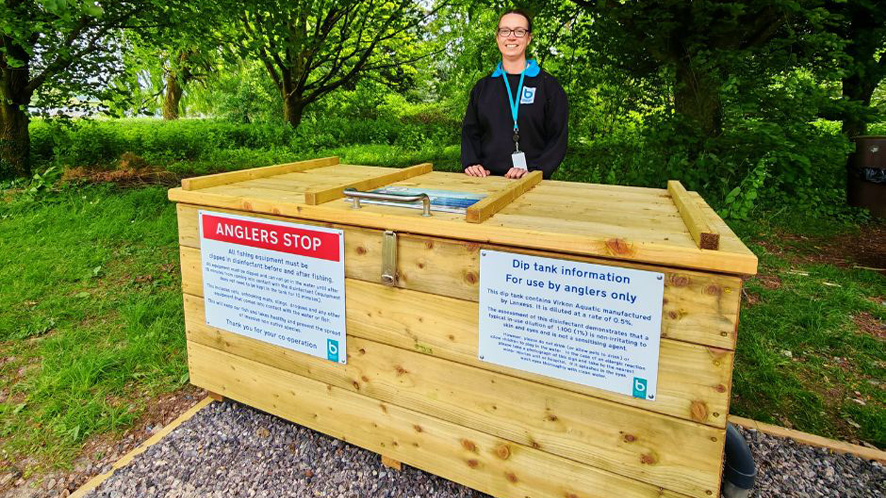
INNS are species that are introduced, intentionally or accidentally, outside their natural distribution, which threaten native species, our ecosystems and our economy.
Figures show the impacts of INNS are estimated to cost the UK more than £4bn a year and are recognised as a problem for water companies.
Bristol Water took the opportunity to shine a light on the steps everyone can take to help prevent the spread of harmful INNS species and safeguard the region’s biodiversity.
At Blagdon Reservoir, Bristol Water’s Environmental Engagement Officer Kirsty Dunford introduced a new angling dip tank which is designed to help anglers clean their equipment and reduce the risk of transferring harmful aquatic species such as zebra mussels and American signal crayfish between water bodies.
The installation of the new tank is part of ongoing efforts by Bristol Water to embed biosecure fishing practices and raise awareness among the angling community about their role in protecting natural habitats.
Kate Hills, Biosecurity and Invasive Non-Native Species Manager at Bournemouth Water said:
“Invasive Species Week is a powerful reminder of the difference we can make when we work together.
“We’ve seen brilliant examples this week of collaboration from scientific workshops to fun, hands-on events that help people understand why tackling invasive species matters and the reception we’ve had when we’re out and about had been absolutely fantastic.
“Every action, big or small, contributes to protecting our ecosystems and the biodiversity that makes this region so special.”


